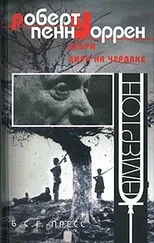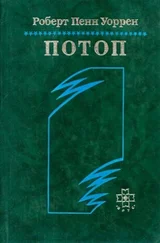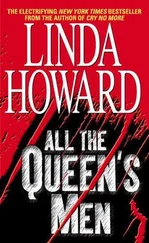Роберт Уоррен - All the king's men
Здесь есть возможность читать онлайн «Роберт Уоррен - All the king's men» весь текст электронной книги совершенно бесплатно (целиком полную версию без сокращений). В некоторых случаях можно слушать аудио, скачать через торрент в формате fb2 и присутствует краткое содержание. Жанр: Современная проза, на английском языке. Описание произведения, (предисловие) а так же отзывы посетителей доступны на портале библиотеки ЛибКат.
- Название:All the king's men
- Автор:
- Жанр:
- Год:неизвестен
- ISBN:нет данных
- Рейтинг книги:4 / 5. Голосов: 1
-
Избранное:Добавить в избранное
- Отзывы:
-
Ваша оценка:
- 80
- 1
- 2
- 3
- 4
- 5
All the king's men: краткое содержание, описание и аннотация
Предлагаем к чтению аннотацию, описание, краткое содержание или предисловие (зависит от того, что написал сам автор книги «All the king's men»). Если вы не нашли необходимую информацию о книге — напишите в комментариях, мы постараемся отыскать её.
All the king's men — читать онлайн бесплатно полную книгу (весь текст) целиком
Ниже представлен текст книги, разбитый по страницам. Система сохранения места последней прочитанной страницы, позволяет с удобством читать онлайн бесплатно книгу «All the king's men», без необходимости каждый раз заново искать на чём Вы остановились. Поставьте закладку, и сможете в любой момент перейти на страницу, на которой закончили чтение.
Интервал:
Закладка:
"He's a hard man," the Judge said. "He's played it hard and close. But there's one principle he's grasped: you don't make omelettes without breaking eggs. And precedents. He's broken plenty of eggs and he may make his omelettes. And remember, the Supreme Court has backed him up on every issue raised to date."
"Yeah, and it's _his__ court. Since he got Armstrong on, and Talbott. And the issues raised. But what about the issues that haven't been raised? That people have been afraid to raise?
"There's a great deal of talk," the Judge said calmly, "but we don't really know much."
"I know he's going to tax this state to death," Mr. Patton said, and shifted his big arms, and glared. "And drive business out of this state. Raising royalty on the state coal land. On the oil land. On–"
"Yes, George," the Judge laughed, "and he slammed an income tax on you and me, too."
"On the oil situation, now," the Young Executive, for the sacred name of oil had been mentioned, "as I see it, the situation–"
Well, Miss Dumonde had certainly opened the corral gate when she mentioned politics, and it was thunder of hoofs and swirl of dust from then on, and I was sitting on the bare ground in the middle of it. For a while it didn't occur to me that there was anything peculiar about the scene. Then it did occur to me. After all, I did work for the fellow who had the tail and the cloven hoof and this was, or had started out to be, a social occasion. I suddenly remembered that fact and decided that the developments were peculiar. Then I realized that they weren't so peculiar, after all. Mr. Patton, and the Young Executive, and Mrs. Patton, for she had begun putting her oar in, and even the Judge, they all assumed that even tough I did work for Willie my heart was with them. I was just picking up a little, or maybe a lot, of change with Willie, but my heart was in Burden's Landing and they had no secrets from me and they knew they couldn't hurt my feelings. Maybe they were right. Maybe my heart was in Burden's Landing. Maybe they couldn't hurt my feelings. But I just broke in, after an hour of sitting quiet and drinking in Miss Dumonde's subtle scent, and said something. I don't recall what I interrupted, but it all amounted to the same thing anyway. I said, "Doesn't it all boil down to this? If the government of this state for quite a long time back had been doing anything for the folks in it, would Stark have been able to get out there with his bare hands and bust the boys? And would he be having to make so many short cuts to get something done to make up for the time lost all these years in not getting something done? I'd just like to submit that question for the sake of argument."
There wasn't a sound for half a minute. Mr. Patton's granite visage seemed to lean toward me like a monument about to fall, and the satchel under Mr. Patton's chin quivered like a tow sack full of kittens, and the sound of the Young Executive's adenoids was plainly audible, and the Judge just sat, with his yellow eyes working over the crowd, and my mother's hands turned in her lap. Then she said, "Why, Son. I didn't know you–you felt that–that way!"
"Why–er–no," Mr. Patton said, "I didn't realize you–er–"
"I didn't say I felt any way," I said. "I just offered a proposition for the sake of argument."
"Argument! Argument!" burst out Mr. Patton, himself again. "It doesn't matter what kind of government this state's had in the past. They never had this kind. Nobody ever tried to grab te whole damned state. Nobody ever–"
"It's a very interesting proposition," the Judge said, and sipped his brandy.
And they were at it again, all except my mother, whose hands kept turning slow in her lap, with the firelight exploding in the big diamond which never came from the Scholarly Attorney. They kept at it until it was time to do.
"Who is that Miss Dumode?" I asked my mother late the next afternoon, sitting in front of the fire.
"Mr. Orton's sister's child," she said, "and she'll inherit his money."
"Well," I said, "somebody ought to wait till she gets the dough and then marry her and drown her in the bathtub."
"Don't talk that way," my mother was saying.
"Don't worry," I said. "I'd like to drown her but I don't want her money. I'm not interested in money. If I wanted to I could reach out any day and knock off ten thousand. Twenty thousand. I–"
"Oh, Son–what Mr. Patton said–those people you're with–Son, now don't get mixed up in any graft, now–"
"Graft is what it calls it when the fellows do it who don't know which fork to use."
"It's the same thing, Son–those people–"
"I don't know what those people, as you call them, do. I'm very careful not to ever know what anybody anywhere does any time."
"Now, Son, don't you, please don't–"
"Don't what?"
"Don't get mixed up in–in anything."
"All I aid was I _could__ reach out and knock off ten thousand. And not graft. Information. Information is money. But I told you I'm not interested in money. Not the slightest. Willie isn't either."
"Willie?" she asked.
"The Boss. The Boss isn't interested in money."
"What's he interested in, the"
"He's interested in Willie. Quite simply and directly. And when anybody is interested in himself quite simply and directly the way Willie is interested in Willie you call it genius. It's only the half-baked people like Mr. Patton who are interested in money. Even the big boys who make a real lot of money aren't interested in money. Henry Ford isn't interested in money. He is interested in Henry Ford and therefore he is a genius."
She reached over and took my hand, and spoke earnestly to me. "Don't, Son, don't talk that way," she said.
"What way?"
"When you talk that way I don't know what to think. I just don't know." And she looked imploringly at me, with the firelight striking across her cheek to make the hollow there hollower and hungrier. She laid her free hand on the hand of mine she held, and when a woman makes that kind of a sandwich out of one of your hands it is always a prelude to something. Which, in this case, was: "Why don't you, Son–why don't you–settle down–why don't you marry some nice girl and–"
"I tried that," I offered. "And if you tried to rig anything for me which that Dumonde you sure rang the lemons."
She was looking at me with a growing, searching, discovering look from her too bright eyes, like somebody puzzling something out of distance. Then she said, "Son–Son, you were sort of funny last night–you didn't enter into things–then the tone you took– "All right," I said.
"You weren't like yourself, like you used to be, you–"
"If I'm ever like I used to be I'll shoot myself," I said, "and if I embarrassed you before those half-wit Pattons and that half-wit Dumonde, I'm sorry."
"Judge Irwin–" she began.
"Leave him out of it," I said. "He's different."
"Oh, Son," she exclaimed, "what makes you be that way? You didn't embarrass me but what makes you that way? It's those people–what you do–why don't you settle down–get a decent job–Judge Irwin, Theodore, they could get you a–"
I snatched my hand out of the sandwich she had made, and said, "I don't want anything in God's world out of them. Or anybody. And I don't want to settle down, and I don't want to get married, and I don't want any other job, and as for the money–"
"Son–Son–" she said, and turned her hand together on her lap.
"And as for money, I don't want any more than I've got. And besides I don't have to worry about that. You've got enough–" I got up from the couch and lighted a cigarette and flung the match stub into the fire– "enough to leave both Theodore and me pretty well fixed."
She didn't move or say anything. She just looked up at me, and I saw that her eyes had tears coming into them, and that she loved me, for I was her son. And that Time didn't mean anything, but that the lifted face with the bright, too large eyes was an old face. The skin lanked down from the cheek hollows under the bright eyes.
Читать дальшеИнтервал:
Закладка:
Похожие книги на «All the king's men»
Представляем Вашему вниманию похожие книги на «All the king's men» списком для выбора. Мы отобрали схожую по названию и смыслу литературу в надежде предоставить читателям больше вариантов отыскать новые, интересные, ещё непрочитанные произведения.
Обсуждение, отзывы о книге «All the king's men» и просто собственные мнения читателей. Оставьте ваши комментарии, напишите, что Вы думаете о произведении, его смысле или главных героях. Укажите что конкретно понравилось, а что нет, и почему Вы так считаете.





![Роберт Уоррен - Рассказы [Компиляция]](/books/419993/robert-uorren-rasskazy-kompilyaciya-thumb.webp)


